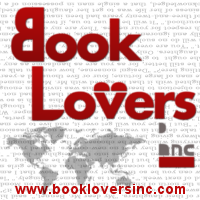Book Lovers Inc.
Romance Novel Reviews, Author Interviews, Commentary
Genres 101: Today’s Lesson "Science Fiction"
Filed in Genres 101 , The Quirky Lover Posted on April 13, 2011 @ 3:00 pm
7 comments
Today, we’ll finally take a look at Science Fiction. We talked before about the difference between Sci-Fi and Fantasy, with Sci-Fi being more firmly based on logic and what is plausibly believable. While Wiki says science fiction dates back from at least the 2nd century, with roots in mythology, it’s easy to understand that as our world has become increasingly technical, the fictional representations and future prospects have been opened up exponentially to authors.
 This is a genre chock full of famous names: H.G. Wells, Jules Verne, Mary Shelley, Arthur C. Clarke, Isaac Asimov. And that’s only a drop in the bucket! It is also just the jumping off point for the many sub-genres that can be said as having certain characteristics of Sci-Fi, but with various other elements. Punk was a major branch in this category, as we previously saw, but here are some more:
This is a genre chock full of famous names: H.G. Wells, Jules Verne, Mary Shelley, Arthur C. Clarke, Isaac Asimov. And that’s only a drop in the bucket! It is also just the jumping off point for the many sub-genres that can be said as having certain characteristics of Sci-Fi, but with various other elements. Punk was a major branch in this category, as we previously saw, but here are some more: There are two main sub’s that seem closely related but with different viewpoints and science branches. Hard Science Fiction is heavily laiden with scientific and/or technical elements; it plays on the accuracy of the sciences involved. Soft Science Fiction deals with the softer sciences, like anthropology, sociology, psychology, etc. It seems there is lots of room between these two types, and according to Wiki’s description, these tend to be more “opposite poles along the same axis”. For me, the first thing I thought of here was Cyborgs versus Planet of the Apes….then again, it it really possible to make a Cyborg? Only time will tell, I guess 😉
 Then there’s the Space Opera. (Ok, this one just wants to make me giggle.) Space Operas are basically soap operas that take place in space. The emphasis in the sub-category is on romance. This type of science fiction actually gained in popularity in the 1920’s in pulp magazines. There’s also the similar Planetary Romance, which has the elements of the soap opera but usually is set in a world with a lost civilization theme. I’m going to go out on a limb and offer the extra difference of one taking place in space while the other is on a planet…safe assumption, right? The title of Space Opera though can sometimes be used in a derogatory sense to indicate less desirable reading material.
Then there’s the Space Opera. (Ok, this one just wants to make me giggle.) Space Operas are basically soap operas that take place in space. The emphasis in the sub-category is on romance. This type of science fiction actually gained in popularity in the 1920’s in pulp magazines. There’s also the similar Planetary Romance, which has the elements of the soap opera but usually is set in a world with a lost civilization theme. I’m going to go out on a limb and offer the extra difference of one taking place in space while the other is on a planet…safe assumption, right? The title of Space Opera though can sometimes be used in a derogatory sense to indicate less desirable reading material.The Space Western is also usually presented in soap style, with new frontiers being developed: “to seek out new planets, new civilizations” (I’m using my best James T. Kirk voice for that) but of course, in a futuristic setting.
 Alternate Universe and Time Travel are other sub’s in this vast category. Time travel is easy enough to understand, with H.G. Wells’ The Time Machine as a great example. (As a strange aside, I think I read last week that they’re making a third Bill and Ted movie…really?!) Alternate Universes seem to involve factors like parallel universes, other dimension, and quantum physics. Douglas Adams took a stab at this in his book Mostly Harmless and for those of you out there that enjoy Doctor Who, it embodies these elements in its fictitious world.
Alternate Universe and Time Travel are other sub’s in this vast category. Time travel is easy enough to understand, with H.G. Wells’ The Time Machine as a great example. (As a strange aside, I think I read last week that they’re making a third Bill and Ted movie…really?!) Alternate Universes seem to involve factors like parallel universes, other dimension, and quantum physics. Douglas Adams took a stab at this in his book Mostly Harmless and for those of you out there that enjoy Doctor Who, it embodies these elements in its fictitious world.Last up, the term Scientific Romance is floating around out there still, though it used more predominantly around the time of Shelley and Verne. Unlike the Space Opera, et al, it isn’t really about romance as such. It was more about the evolution of our own world and downplaying the necessity of space exploration. Often these books have bleak settings…seriously, whoever decided to associate “bleak” with “romantic” should have used a dictionary! But I think this may have been used during the Romantic period of literature, where the name didn’t necessarily mean ‘love’ but more the overall idealism of the writers. More recently, Scientific Romance has been linked with Steampunk because of the shared element of being “based on Victorian or Edwardian sensibilities”.
I’m lacking in modern examples in this genre (or any of the subgenres) because it is not one that I tend to read. So, my assignment for today (the idea of teaching power has gone to my head, lol) is for modern titles and/or authors that fit any of the descriptions under this main heading of Science Fiction.
Thanks for reading!
Share This Post
Subscribe and stay up-to-date
7 Comments
Join the Discussion
Previous Post
« Review: This Side of the Grave by Jeaniene Frost Next Post
Guest Post: Kick-Ass Sci-Fi Heroines by Zoë Archer + Giveaway »
« Review: This Side of the Grave by Jeaniene Frost Next Post
Guest Post: Kick-Ass Sci-Fi Heroines by Zoë Archer + Giveaway »
















 Blog RSS Feed
Blog RSS Feed Follow Me on Twitter
Follow Me on Twitter My Facebook
My Facebook
This is such a well executed post. Very interesting that according to Wiki. Sci-Fi has roots in mythology (from the 2nd century)…if someone from the 2nd Century came to today's world I think they would definitely thing that all the technology we have is mythological or magical.
Space Opera used to be (at least as described by it's critics) as soap opera in space but this is no longer true. Space Opera is now on the soft side of science fiction (think Star Wars and Star Trek) with grandiose storyline that span star systems (or an entire galaxy) and focus on grand adventure (via war, exploration or a combination of the two) as oppose to hard science.
What you describe is akin to science fiction romance which is romance in a science fiction setting.
And you touched the tip of the iceberg when it comes to sci-fi sub-genres: steam punk, cyberpunk (with post cyber punk), some forms of techno thrillers, military sci-fi and some others I can't remember right now.
Close… however, we do have functional cyborgs. That's not a maybe, it's a real tech used today. Not exceptionally common, but it is on the way to being the norm for first world amputees.
Science Fiction Romance is not Shelley or Verne. An SFR novel balances a plot between sci-fi and romance and can't lose either without losing the premise of the story. It's a growing subgenre and if you're curious you can check out SFR Brigade
http://tinyurl.com/63zvx2m and all the author there to see what it is and who writes it.
The bleak books you're talking about fall under Dystopian. That I could see falling under the Romantic ideal. So perhaps it's a conflict of antique and modern terms?
Steampunk is it's own genre and splits sci-fi and fantasy fairly well.
And you've left out Science Fantasy, the Star Wars-esque books that combine sci-fi with magic elements (the Mageworlds series comes to mind), and military sci-fi. Military sometimes gets classed under Hard Sci-fi, but it isn't on the same plane as Red Mars.
So… books and authors?
Hard Sci-fi: Red Mars
Soft Sci-fi: Only You Can Save Mankind by Terry Pratchett
Space Opera: Vorkosigan Saga by Bujold
Planetary Romance: Jason Wander series, because it has dinosaurs!
Space Western: Killbox by Ann Aguire
Alternate Universe: Any of the Aliens in WWII books
Time Travel: Would the Time Travelers Wife be too obvious? This is a common UF/fantasy element but nothing on my shelf screams time travel.
Dystopian Scientific Romance: The Giver
Biopunk: The Changeling Plague
Cyberpunk: Hopscotch
Steampunk: Rapunzel's Revenge by Hale
SFR: Downhome Zombie Blues by Linnea Sinclair or Cordelia's Honor by Bujold
Military Sci-fi: Lost Fleet by Jack Campbell ties with Vatta's War by Moon
Science Fantasy: Price of the Stars
Did I miss anybody?
Dear Husband says Timeline for time travel. It's near-future sci-fi (which might also be it's own subgenre) but it counts.
Jurassic Park would also work for biopunk.
Wow, thank you Jackie, this was very interesting and informative!
I'm not very familiar with science fiction, only read about 2 novels: the Kitty Katt series by Gini Koch and Lady Doctor Wyre by Joely Sue Burkhart, which is categorized as space opera 🙂
@Midnyte Reader – Thank you. It's hard to give complete detail on so many facets in limited space, so I hope a do a bit of justice…(I don't want readers falling asleep on me, lol). And totally true about the reverse time travel 🙂
@ralfast – I did cover the "Punk" subgenre in a separate post because it had it's own multi-levels. I think the lines blur between genres and their subs quite a bit. It can be hard to tell where things fit exactly…for the Space Opera, the image that came to mind for me was Kirk and that blue woman (or was she green? it's been a while :-p).
@Liana – Cyborgs I always imagine as having been taken over by the tech parts, but still a bit human, but you are so right! My daughter wears a cochlear implant nicknamed a bionic ear..that's along similar lines, I guess 🙂
And thank you for the great list of titles. I did discuss Dystopian and Fantasy in earlier posts, though I did not include the military SF here. The big difference between Dystopian and SF Romance is probably the amount of tech included. Oh, I totally forgot about Time Traveller's Wife…that was heavily based on a DNA issue, right? Thanks!
@Stella – Thank you 🙂 For me, my biggest exposure to Sci-Fi is movies; I'm not sure I've ever read a book with these elements…
Great breakdown of the genre. I haven't read any hard scifi in years and I used to live on the stuff.
Still, steampunk is a subgenre I first learned about via Japanese anime so it was interesting to see it really blossom in literature now.